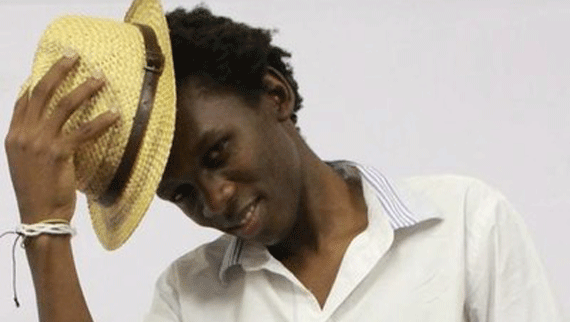
READING the letter[highlight] Not too late to preach abstinence[/highlight] in the Southern Eye newspaper recently, I couldn’t help but marvel at how the author made young people and their sexual habits seem so simple.
SONNY JERMAIN
I took to Twitter and posted a link about the article. The author, Tsitsi Matimati, and a few other people picked up my tweet and a discussion ensued via the social media site. We are at the height of our development as human beings and yet issues of sex and sexuality still polarise our societies worldwide. Sex is a sensitive subject.
Parents want their children to get sex education – they just don’t know how to do it themselves and would rather have someone else do it for them. I’ve written before about how it takes TV to raise a child.
In her article, the author says that 16-year-olds should not know about condoms and contraception. First of all, in the Zimbabwean primary school education syllabus, reproductive health is taught at Grade 6 and that is around the age of 11 or 12 for most children. Reproductive (or sexual) organs, all the common sexually transmitted infections, types of condoms and contraceptives are discussed in detail.
The same module is repeated — as is (because sex really doesn’t change) — in Form 2 and in Form 4 of the secondary education syllabus. I remember that as a hilarious part of my education with all the jokes classmates made. I passed Grade 7 Content and “O” Level Biology and Science. I also facilitate on gender and sex issues occasionally for youth groups.
This brings me to the first point of in my gender facilitation process — consent. Consent means to agree or comply. Where sex is concerned, consent is all that matters in the law, which is why there is a legal age of consent – 16 in Zimbabwe.
- Chamisa under fire over US$120K donation
- Mavhunga puts DeMbare into Chibuku quarterfinals
- Pension funds bet on Cabora Bassa oilfields
- Councils defy govt fire tender directive
Keep Reading
Yes, we live in a world where right next door in South Africa, the legal age of consent was recently lowered to 12. In countries like Russia, Germany and Japan, the age of consent is between 13 and 14. Though sex below 16 is technically an offence, it happens anyway.
Sex actually begins at the age of five or six around the inquisitive show-me-yours-and-I’ll-show-you-mine age which sees children sneaking to the backyard. Sex begins at five or six when an unwitting mother bathing her girl child and nephew hears the girl gasping to her male cousin: “What on earth is that between your legs?”
The above are fond true stories in my family. They remind me of an article by local playwright Mgcini Nyoni, who wrote on his blog that sexuality has no common sense.
The point is that young people will then head onto penetrative sex — with or without protection regardless of ages of consent — informed or misinformed about why they are having sex.
Biologically, living creatures are meant to have sex as soon as they can. Preaching abstinence won’t work. You don’t abstain because you heard it in the news or you were told — you abstain because you want to. The term “premarital sex” is widely used because society refuses to accept the reality that young people get sexually active early in life. Young people should not be misled. Sex is not bad. However, it is wise and safer to get into it when one is mature – mentally, physically and emotionally. Age and marriage has nothing to do with it.
Sex education should not only be left for school, friends or TV. Safe sex and contraception should be accessed by young people who feel like it because they will have sex as and when they feel like it.
The Health ministry recently tried to introduce condoms and contraception for young people. I cringed like everyone else when I saw the headline, but for a different reason. The Press had got it wrong and the headline was antagonising.
The ministry’s went on to disappoint me by cowering and not fixing the PR problem in defending their idea. They didn’t even try. They just backed away from the issue and yet they are the ones who have to bear the brunt of issues of reproductive health in the country. I am certain that the ministry had every good intention. SONNY JERMAIN
[highlight]– dEck Magazine[/highlight]











